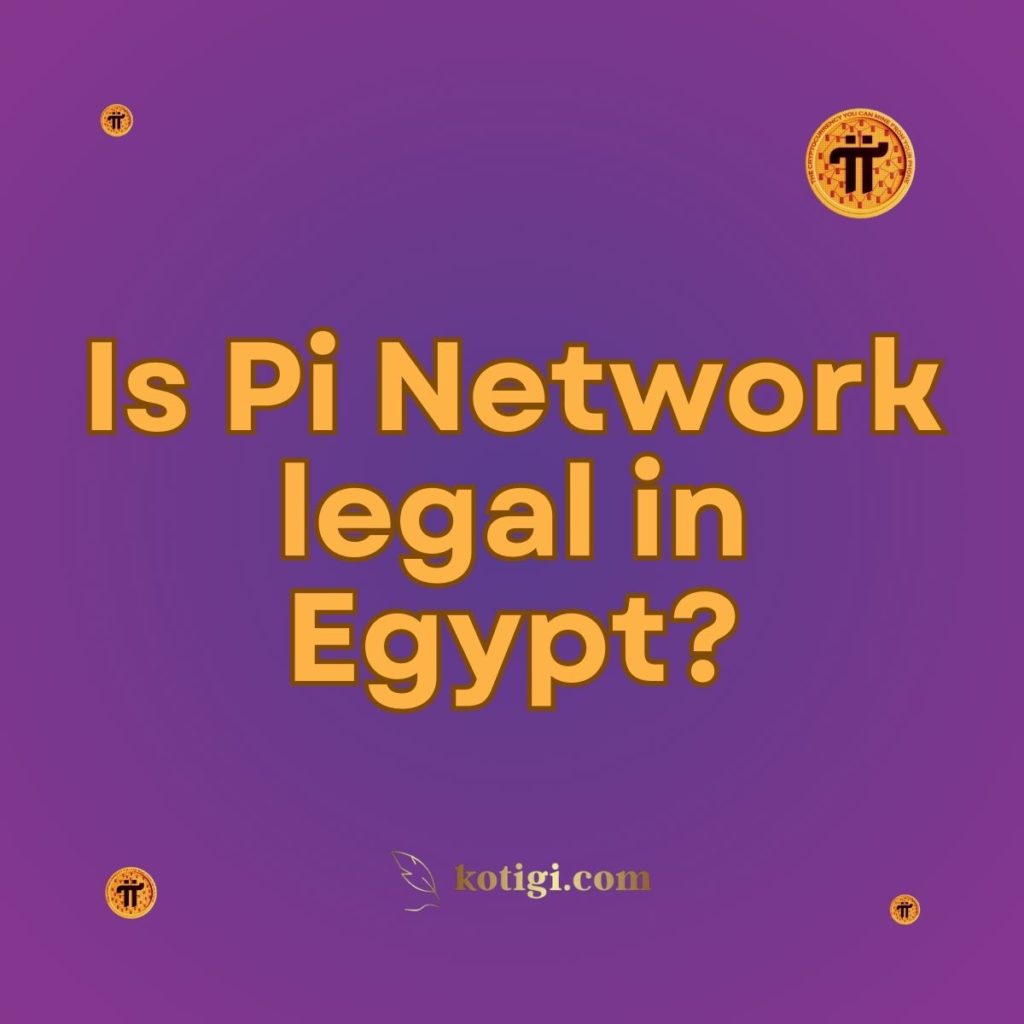
Is Pi Network legal in Egypt?
Pi Network, a cryptocurrency project that allows users to mine Pi coins using their smartphones, has attracted global attention, including in Egypt. However, the legal status of cryptocurrencies varies widely from country to country, and Egypt has taken a cautious approach to the adoption and regulation of digital currencies. Below is an overview of the current legal status and key considerations for Pi Network in Egypt:
1. Regulatory Status in Egypt
1.1 Cryptocurrency Regulations in Egypt:
In Egypt, the legal framework surrounding cryptocurrencies is restrictive. The Central Bank of Egypt (CBE) has issued several warnings regarding the use of cryptocurrencies, stating that digital currencies like Bitcoin are not legal tender in the country. The CBE has also prohibited the trading and use of cryptocurrencies within the Egyptian financial system. This cautious stance stems from concerns over financial stability, consumer protection, and the potential for misuse in illegal activities.
1.2 Pi Network’s Legal Standing:
As of now, there is no specific regulation or law in Egypt that directly addresses Pi Network. However, given the CBE’s general stance on cryptocurrencies, it is likely that the use of Pi Network in Egypt would be viewed with skepticism by authorities. Since Pi Network is still in its development phase and has not yet launched its mainnet, its tokens currently hold no real-world value, which may influence how regulators perceive the project.
2. Central Bank of Egypt (CBE) Oversight
2.1 Prohibition on Cryptocurrencies:
The CBE has made it clear that cryptocurrencies are not recognized as legal tender in Egypt. This means that digital currencies, including Pi, cannot be used for transactions or as a store of value in any official capacity. The CBE has also warned citizens against investing in or trading cryptocurrencies due to the high risks involved, including volatility, fraud, and the lack of regulatory oversight.
2.2 Potential Legal Risks:
Engaging with Pi Network or any other cryptocurrency in Egypt may expose users to legal risks. While there have not been widely reported cases of enforcement against individual users of cryptocurrency, the use of Pi Network could potentially fall under the CBE’s broader prohibition on cryptocurrencies. Users should be aware that any significant promotion or trading of Pi tokens could attract legal scrutiny.
3. Consumer Protection and Legal Considerations
3.1 Transparency and Information Disclosure:
Given the restrictive environment, it is crucial for users in Egypt to be fully aware of the risks associated with using Pi Network. Pi Network currently offers no real-world value, and its future value is uncertain. The project’s ongoing development status and lack of full regulatory clarity mean that users should proceed with caution.
3.2 Legal Advice and Compliance:
Egyptian users considering participation in Pi Network should seek legal advice to understand the potential risks and legal implications. Compliance with local laws is critical to avoid potential penalties or legal action. While using Pi Network for personal purposes may not immediately lead to legal issues, any involvement in promoting, trading, or transacting in Pi could attract attention from authorities.
4. Broader Legal and Social Context in Egypt
4.1 Social and Religious Perspectives:
In addition to legal restrictions, there are also social and religious considerations in Egypt. Some religious authorities in the country have issued fatwas against the use of cryptocurrencies, citing concerns about their speculative nature and potential for facilitating illegal activities. These religious rulings can influence public perception and acceptance of cryptocurrencies like Pi Network.
4.2 Future Regulatory Developments:
The legal environment for cryptocurrencies in Egypt is evolving, and future regulations could impact the legality of Pi Network. It is possible that the Egyptian government may introduce more specific regulations on digital currencies, which could either clarify or further restrict the use of projects like Pi Network.
Conclusion
The legality of Pi Network in Egypt is uncertain due to the country’s restrictive stance on cryptocurrencies. While there is no specific law addressing Pi Network, the Central Bank of Egypt’s prohibition on cryptocurrencies suggests that using Pi Network could be risky. Egyptian users should be cautious and fully aware of the legal implications, as well as consider seeking legal advice before engaging with Pi Network. As with any cryptocurrency project, understanding the local regulatory environment and proceeding with caution is essential.




